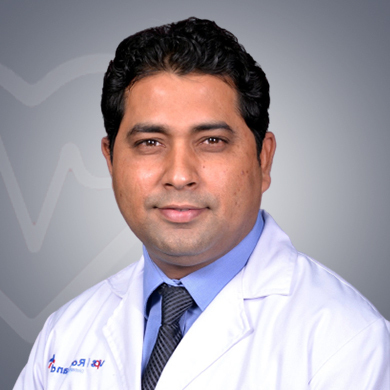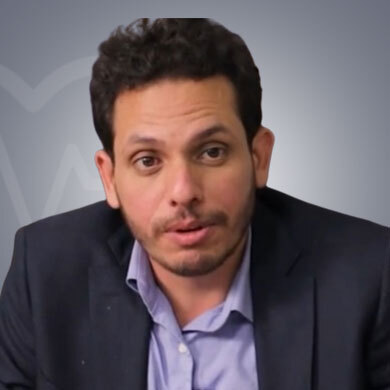
Dr. Ervin Bacs is a specialized General Laparoscopic Surgeon in Hungary. And one of the most sought after medical specialists in Budapest, Hungary. The doctor has over 19 Years of experience and is associated with Dr. Rose Private Hospital.
Qualifications :
Hospital Address :
Budapest, Dr. Rose Private Hospital, Szchenyi Istvn tr, Hungary
What is the medical expertise of Dr Ervin Bacs?

Dr. Janos Balazs Kovacs is a specialized General Laparoscopic Surgeon in Hungary. And one of the most sought after medical specialists in Budapest, Hungary. The doctor has over 28 Years of experience and is associated with Dr. Rose Private Hospital.
Qualifications :
Hospital Address :
Budapest, Dr. Rose Private Hospital, Szchenyi Istvn tr, Hungary

General Laparoscopic Surgeon
Verified
Aakash Healthcare Super Speciality Hospital , Delhi, India
18 Years of experience
Speaks: English
USD 33 USD 28 for video consultation
Dr Nikhil Yadav is one of the best General & Laparoscopic Surgeon in New Delhi, India. The doctor holds over 18 years of experience and is associated with Aakash Healthcare Super Speciality Hospital.

General Laparoscopic Surgeon
Verified
Srikara Hospital, RTC Cross Roads , Hyderabad, India
5 Years of experience
Speaks: English
USD 36 USD 30 for video consultation

General Laparoscopic Surgeon
Verified
Sanar International Hospital , Gurugram, India
25 Years of experience
Speaks: English,Hindi
USD 60 USD 50 for video consultation
Dr. Vinay Shaw is a specialized Bariatric Surgeon in India. And one of the most sought-after medical specialists in New Delhi, India. The doctor has over 17 Years of experience and was associated with Medeor Hospital.
Association and Memberships Dr. Vinay Shaw is part of:
Qualifications :

General Surgeon
Verified
Max Super Specialty Hospital, Shalimar Bagh , Delhi, India
15 Years of experience
Speaks: English
USD 38 USD 32 for video consultation
Dr Vivek Bindal is one of the most skillful General Surgeon in Ghaziabad, India. The medical practitioner holds over 15 years of experience and is associated with Max Super Specialty Hospital, Vaishali.
Association and Memberships Dr. Vivek Bindal is part of:
Certifications :
Qualifications :
Hospital Address :
Max Super Speciality Hospital, Vaishali, near Radisson Blu Hotel, Sector-1, Vaishali, Ghaziabad, Uttar Pradesh, India
Medical Expertise of Dr. Vivek Bindal

Gastrointestinal and Bariatric Surgeon
Verified
Istinye University Bahcesehir - LIV Hospital , Istanbul, Turkey
20 Years of experience
Speaks: English
USD 246 USD 205 for video consultation
Dr. Umit Koc is a specialized Gastrointestinal Surgeon in Turkey. And one of the most sought after medical specialists in Istanbul, Turkey. The doctor has over 20 Years of experience and is associated with Istinye University Bahcesehir - LIV Hospital.
Qualifications :
Hospital Address :
Ak Veysel Mah, stinye

General Laparoscopic Surgeon
Verified
Srikara Hospital, RTC Cross Roads , Hyderabad, India
6 Years of experience
Speaks: English
USD 36 USD 30 for video consultation

General Laparoscopic Surgeon
Verified
Cairo, Egypt
10 Years of experience
Speaks: Arabic,English
USD 60 USD 50 for video consultation
Dr. Abdelkhalek has expertise in performing obesity and weight loss surgeries.

General Laparoscopic Surgeon
Verified
Fortis Hospital , Noida, India
20 Years of experience
Speaks: English
USD 38 USD 32 for video consultation

General Laparoscopic Surgeon
Verified
NMC Specialty Hospital , Abu Dhabi, United Arab Emirates
15 Years of experience
Speaks: English,Hindi,Bengali
USD 230 USD 205 for video consultation
Dr. Rajarshi Mitra is an expert in laparoscopic and general surgery procedures. He is also an expert of proctology and can provide effective treatments for hemorrhoids and fissures.

General Surgeon
Verified
Manipal Hospital, Ghaziabad , Ghaziabad, India
38 Years of experience
USD 54 USD 45 for video consultation

General Surgeon
Verified
Pushpawati Singhania Research Institute , Delhi, India
26 Years of experience
Speaks: English
USD 50 USD 42 for video consultation
Dr Sumit Shah is one of the best General Surgeon in New Delhi, India. The clinician holds over 26 years of experience and is associated with Pushpawati Singhania Research Institute.
Association and Memberships Dr. Sumit Shah is part of:
Certifications :
Qualifications :
Hospital Address :
Pushpawati Singhania Research Institute, Phase II, Sheikh Sarai, New Delhi, Delhi, India
Medical Expertise of Dr. Sumit Shah

General Laparoscopic Surgeon
Verified
NMC Royal Hospital, DIP , Dubai, United Arab Emirates
30 Years of experience
Speaks: English
USD 168 USD 140 for video consultation
Ananth Pai is a specialized General Surgeon. And one of the most sought after medical specialists in United Arab Emirates. The doctor has 30 Years of experience and is associated with , one of the best hospitals in Dubai, United Arab Emirates.

Pediatric Surgeon
Verified
Asian Institute of Medical Sciences , Faridabad, India
7 Years of experience
Speaks: English,Hindi
USD 48 USD 40 for video consultation
Vivek Kumar Jindal is a specialized General Surgeon. And one of the most sought after medical specialists in India. The doctor has 7 Years of experience and is associated with, one of the best hospitals in Faridabad, India.
A general laparoscopic surgeon is a doctor specialized in performing laparoscopic surgeries. Laparoscopic surgery, also known as keyhole surgery, is a surgical procedure performed through a small incision, made for the surgery, and passing a small tube with a video camera to the body cavity to look inside the body and pinpoint the area of operation.
General surgeons are trained to operate on the:
In addition to that, general surgeons are trained and experienced in providing patient care before, during, and after surgery, including:
There are various reason that your physician might ask you to visit a laparoscopic surgery, some of them includes:
Laparoscopy is used to diagnose and treat many problems including:
| Doctor | Associated Hospital |
|---|---|
| Dr. Janos Balazs Kovacs | Dr. Rose Private Hospital, Budapest |
| Dr. Ervin Bacs | Dr. Rose Private Hospital, Budapest |
Please make sure to see your doctor using Telemedicine before you even board a flight
Popular General Surgeon in Top Countries are :
Top Speciality Doctors in Hungary:
List of Top Rated Hospitals where we can find General Surgeon in Hungary are as followed:
Yes, we provide the list of General Surgeon in Hungary in the following languages:
Given below are some of the most sought after general laparoscopic surgeons in other countries:
Following are some of the best clinics in Hungary with whom general laparoscopic surgeons are associated with:
Most common conditions performed by general laparoscopic surgeons in Hungary are:
Top Medical Specialities in Hungary are: